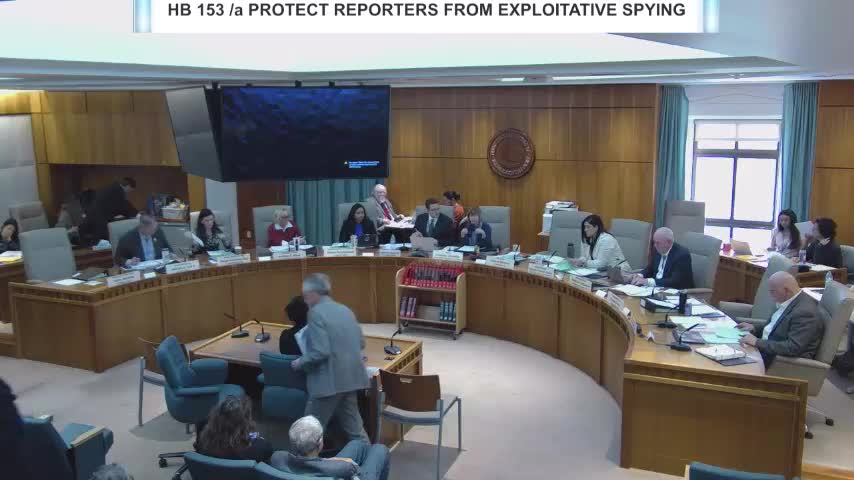Committee hears bill to update New Mexico press-shield law; hearing continued for revised draft
Get AI-powered insights, summaries, and transcripts
Subscribe
Summary
Lawmakers discussed a bill to update the state's 1973 press-shield statute to add modern communications and carve out judicial subpoenas; sponsors and an expert witness briefed the committee and asked for time to circulate a consolidated '0.3' draft before further action.
Lawmakers in the House Judiciary Committee discussed House Bill 153, a measure to modernize New Mexico’s press-shield statute originally enacted in 1973. The sponsor said the bill updates definitions of who qualifies as a journalist and clarifies protections for electronic communications and service providers.
The sponsor described the bill as bringing New Mexico law in line with federal-model statutes and noted it would exclude judicial subpoenas from the statutory protections because the New Mexico Supreme Court has previously limited legislative attempts to constrain courts.
Kip Purcell, an attorney who identified himself as an expert on press-shield law, told the committee that New Mexico’s current statute was written before the internet era, that many states now have shield statutes, and that the bill aims to protect journalists, modern media and electronic service providers while respecting court authority on judicial subpoenas. Purcell described the bill as “as close as possible to the federal model statute” while excluding judicial subpoenas because of constitutional limits described in Ammerman v. Hubbard Broadcasting Co. and the U.S. Supreme Court decision in Branzburg v. Hayes.
Committee members raised questions about how the bill would interact with criminal search warrants and whether protections for administrative or executive subpoenas could unintentionally hamper criminal investigations. Purcell said the bill is intended to govern administrative and legislative subpoenas but not judicial subpoenas or warrants and that enforcement of administrative subpoenas typically requires court proceedings.
Committee members and staff noted that multiple draft versions and late technical edits had created confusion. Sponsors indicated a consolidated 0.3 draft had been prepared; the committee agreed to continue detailed consideration after members had time to review the revised draft. The committee did not vote on House Bill 153 during the session and scheduled further discussion after circulation of the consolidated draft.
